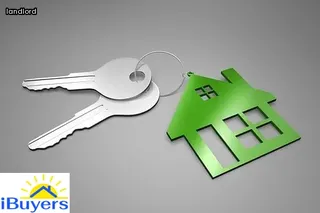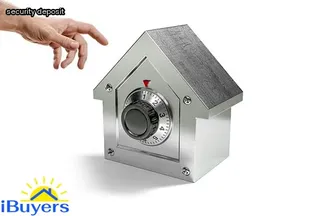As a landlord, it is important to understand your rights when it comes to tenant damage to your property. You have the right to take legal action if necessary, as well as the right to deduct reasonable costs associated with repair and cleaning from the tenant's security deposit.
Before taking any action, make sure that you understand state and local laws regarding landlord-tenant rights. You may also want to consult an attorney for advice on how to handle the situation in a way that complies with the law.
Additionally, you should document all damages that occurred during the tenancy and create a record of any conversations or agreements made between you and the tenant. This will help protect you should there be any disputes in the future.
Lastly, consider developing a thorough lease agreement that outlines what type of behavior is expected from tenants in order to minimize risk of property damage in the future.

When investing in rental property, it is important to consider the potential for tenant damage. Tenants can cause significant damage to a rental property, both financially and emotionally.
Landlords should be aware of the risks associated with renting out their property and have a plan in place to handle any potential damages that arise. Landlords should also be familiar with the local law regarding tenant damage and ensure they are following all relevant regulations.
Additionally, landlords should be sure to properly vet potential tenants before renting out their property and invest in insurance coverage which will protect them from any liability arising from tenant damage. Finally, having clear communication with tenants about what is expected of them during their time at the rental property can help to reduce the chances of tenant damage occurring in the first place.
When it comes to tenant damage to property, it is important for landlords to understand how best to handle the situation. The most important tip for dealing with tenant-inflicted damage is to ensure that proper documentation is taken of the condition of the property prior to a tenant moving in.
Landlords should also provide tenants with an itemized list of damages upon move out so that any additional damages can be easily identified. Additionally, if a landlord chooses to charge a security deposit, this can provide protection against any potential tenant-caused property damage.
When handling damaged property, it is also important for landlords to take photos of the area affected and save all repair receipts. Lastly, being proactive when it comes to maintenance and repairs can help minimize the incidence of tenant-induced damage by ensuring that any potential issues are fixed quickly before they become larger problems.

As a landlord, it is important to be aware of the potential damage that tenants can cause to your property and to take proactive steps to mitigate this. Taking some simple precautions like conducting regular inspections of the property and creating an easily understood contract can help prevent disputes over repairs or cleaning fees.
Additionally, requiring a security deposit as part of the rental agreement will provide you with financial protection in case of any damages incurred during the tenancy. Requiring tenants to carry renters insurance is also a smart move as it provides them with coverage for any damage they may cause, while still allowing you to pursue legal action if necessary.
Lastly, having clearly outlined rules and expectations in your lease agreement and regularly reminding tenants of these requirements can help ensure that they are honoring the terms of their lease. By following these steps, landlords can reduce the chance of tenant-caused damage and maintain a safe and secure environment for their tenants.
When it comes to collecting payment from tenants, it is important for landlords to have a clear and concise policy in place. Landlords should identify what forms of payment they accept prior to the tenant signing their lease agreement.
It's also essential to be proactive in terms of communication with tenants concerning late payments. Landlords can set up an automated system of reminders or notifications to ensure that tenants are aware of when their payments are due.
Additionally, landlords may want to consider offering incentives such as rent reductions or loyalty rewards for timely payments. Landlords must also be prepared with legal action if necessary, including small claims court or eviction proceedings.
Lastly, landlords should investigate all collections agency options available to them and make sure that the agency is compliant with relevant regulations and laws. Dealing with tenant damage can be a daunting task but by following these strategies for collecting payment from tenants, landlords can protect their investments and maximize their rental income.

Regular property inspections are an essential part of managing rental properties, as they can help identify tenant damage early on and allow landlords to take corrective action. Informal property inspections, which don't require the tenant's presence, are especially useful for quickly assessing the condition of the unit.
Landlords should conduct informal inspections every few months in order to spot any potential damages or maintenance issues that may have arisen since the last inspection. To ensure accuracy, it is important to make thorough notes during these inspections, documenting any signs of tenant damage that you observe.
Additionally, photos can be a great way to supplement your notes and provide further evidence if necessary. While informal inspections can be very helpful in identifying tenant damage, it is also important for landlords to remember that their tenants have rights and should be treated with respect when conducting such assessments.
As a landlord, it is important to take proactive measures to prevent tenant damage to property. One of the best ways to do this is by providing clear instructions and expectations in your lease agreement.
Be sure that all tenants are aware of the rules of the rental unit, including any restrictions on alterations or repairs that must be completed by a professional. Additionally, it may be helpful to conduct regular inspections to ensure that tenants are abiding by these rules and that no damage has been done.
If issues are found during an inspection, landlords can address them immediately in order to prevent further damage from occurring. You may also want to consider implementing a deposit or security fee for tenants as an added protection in case of accidental damage or other related costs.
With these preventive measures in place, landlords can feel confident that their property will remain safe from tenant-caused damages.

If a tenant breaches their lease agreement, the first step for any landlord is to document the damage and send a written notice to the tenant. This written notice should include the description of the damage, how much it will cost to repair, and what steps need to be taken for them to rectify their breach of contract.
Depending on the severity of the issue, landlords can choose from a variety of options such as tenants paying for repairs out-of-pocket or tenants making up rent they owe due to late payments. Landlords may also opt to take legal action against a tenant by filing an eviction complaint with their local court.
If going down this route, landlords should be sure to have all necessary paperwork in order such as copies of signed leases, photos and videos documenting damages, and records of payment attempts made by tenants. Ultimately, it's important that landlords read through their rental agreement thoroughly and understand all relevant regulations in order for them to handle any potential breach of contract situations successfully.
As a landlord, it is important to be aware of any unauthorized occupancy of property on your rental unit. Unauthorized occupancy occurs when tenants move in other people without the landlord's knowledge or consent.
It can cause a variety of problems such as overcrowding, safety issues and increased wear and tear on the property. To ensure that you are adequately prepared to handle these situations, it is important to first determine if unauthorized occupants are present in your rental unit.
Signs of unauthorized occupancy include multiple vehicles in the driveway, multiple names listed on mailboxes or tenant applications, and more people than expected occupying the unit. Once you have determined that there is an issue with unauthorized occupants, it is important to take swift action.
You should contact the tenants immediately and inform them that they have violated their lease agreement by allowing others to reside in the rental unit without permission. Outline the consequences for violating this rule and discuss how they can quickly resolve the problem by either removing any unauthorized persons from the premises or paying additional rent for them to remain.
Additionally, make sure that all future tenants understand your policy about unauthorized occupants so that this situation does not arise again in the future. By taking proactive steps and addressing tenant violations quickly and professionally, landlords can protect their investments from damage caused by unauthorized occupancy of property.

When it comes to rental properties, delinquent rent payments are one of the most common issues landlords and property owners face. As a landlord, it is important to understand the strategies for handling these situations in order to ensure that your tenant is held accountable while also protecting your rights as an owner.
The first step is to create a comprehensive policy at the onset of the tenancy that outlines the consequences of late or missing rent payments. This should include details such as what fees may be charged, how much time will be allowed before legal action is taken, and whether any type of payment plan can be arranged with the tenant.
Additionally, communication should remain open between you and your tenant throughout past due notices so that they understand their obligations and have a clear path to resolution. If all else fails and legal action must be taken, many states provide specific laws for eviction proceedings that you should familiarize yourself with in order to protect your rights as a landlord or property owner.
There are a few things landlords must consider when determining liability in damage disputes with tenants.
First, there is the issue of negligence: was the tenant responsible for the damage or not? Second, if the tenant was negligent, to what degree? Third, did the tenant have insurance that covers property damage? Fourth, can the landlord require tenants to purchase renter's insurance? Fifth, how much of the cost should be covered by the tenant’s security deposit? Lastly, when is it appropriate for a landlord to take legal action against a tenant for property damage? All of these questions must be answered before landlords can make an informed decision about who is liable for damages and how much they will be required to pay.

When dealing with tenant damage to property, it is important for landlords to have a comprehensive plan in place for how to handle these situations. Part of this plan should include negotiation tactics for resolving damage claims.
Negotiating with tenants can be a difficult process and requires patience, understanding, and effective communication. Landlords should strive to maintain an open dialogue with their tenants while also representing the interests of their property in any negotiations.
In order to ensure that both parties come away from the negotiation feeling satisfied, the landlord should take steps to create a fair resolution that addresses all concerns. This could include offering a payment plan or repair agreement that satisfies both parties while protecting the landlord's rights as well.
Additionally, landlords should remain flexible and open-minded during negotiations, as this can help create an atmosphere of trust and cooperation between themselves and their tenants which can lead to better outcomes for everyone involved.
Making changes to a rental unit while it is occupied can be tricky. As a landlord, you need to be aware of the legal rights and responsibilities of both you and the tenant when it comes to making modifications or renovations.
It's important to create a clear agreement between you and the tenant before any construction or renovation begins, outlining what will be done and who will pay for it. Additionally, landlords should also include specific provisions about how long work can take place during normal business hours and if there are any noise restrictions that need to be followed.
Furthermore, if there are any safety issues related to the project, such as exposed wiring or debris from construction, these must be addressed immediately. Lastly, all changes should be documented in writing and recorded in the rental agreement so that both parties have an official record of what was done and when.
Landlords should make sure they understand their legal obligations when making changes to a rental unit during occupancy in order to avoid potential disputes with tenants down the road.

Documenting the condition of rental property prior to move in is an essential part of being a responsible landlord. Taking pictures and having tenants sign off on a walk-through report provides legal protection should any damage arise during their tenancy.
It is also important to keep all documents in an organized file, such as a binder or digital folder, for easy access when needed. Landlords should document all aspects of the property including walls, doors, windows, appliances, and flooring.
Additionally, it can be helpful to note the general cleanliness at the time of move-in so that any changes can be documented and accounted for later. Before handing over keys to the tenant, landlords should make sure that all documentation is complete and signed by both parties.
Doing this will help ensure that any tenant damages are caught early on and handled appropriately.
Security deposits are a powerful tool for landlords when it comes to resolving tenant damage disputes. It is important that landlords understand exactly how their state's laws address security deposits, as the rules can vary greatly from state to state.
Generally, security deposits can be used to cover costs associated with the repair or replacement of damaged items, but there may be restrictions on how much deposit money can be applied to any one item. Landlords must also ensure they are following the proper protocol for collecting and refunding security deposits at the end of a tenancy agreement.
This includes providing tenants with a detailed list of damages and estimated costs before money is deducted from the deposit. Additionally, if repairs exceed the amount of the security deposit, landlords should pursue other methods of collecting payment from tenants such as small claims court judgments.
Ultimately, having a comprehensive understanding of security deposits and how they relate to tenant damage disputes will empower landlords in their efforts to protect their property investment.

Regular maintenance visits are a great way for landlords to keep their properties in top condition, as well as prevent tenants from causing any major damage. By conducting regular visits, landlords can identify small issues that could become much bigger problems if left unaddressed, such as loose boards or cracked tiles.
This allows them to make repairs quickly and cost-effectively, before the damage becomes more severe. Regular maintenance visits also help landlords to stay on top of safety regulations and ensure that all appliances and other property elements are working correctly.
In addition, these visits give landlords an opportunity to check that tenants are adhering to the terms of their lease agreement and not damaging the property in any way. Ultimately, regular maintenance visits provide landlords with peace of mind knowing that their properties are being well cared for by tenants and kept in optimal condition.
Getting revenge on a bad tenant should not be the focus of any landlord. Instead, the priority should be to protect your property and to document the damage caused by the tenant through photographs or videos, if possible.
In some cases, you may be able to file a lawsuit against the tenant for damages that exceed their security deposit. However, it is important to remember that this could lead to a lengthy and costly legal process that may not yield a successful result.
Additionally, pursuing criminal charges or defaming the tenant could carry significant legal risks for landlords. The best way to handle tenant damage is to enforce the lease agreement and hold tenants accountable for any damage they cause.
Make sure you provide clear expectations about what type of damage is unacceptable and how it should be handled in your rental agreements. Take pictures or videos of the property before each new tenancy begins and again when it ends so that you can document any changes in condition during tenancy.
Finally, consider purchasing renters insurance which will protect against unexpected damage caused by tenants.
A: Landlords should take legal action against tenants who cause damage to their property. Property management companies can help landlords with the process of filing a claim and recovering damages from tenants responsible for destruction of the property.
A: If a tenant destroys property, the landlord should immediately contact their insurance provider and file a claim. Depending on the severity of the damage and the rental agreement, it may also be appropriate to take legal action against the tenant.
A: If the tenant fails to make payment voluntarily, the landlord may need to pursue legal action. The result of such action may be wage garnishment, which is when money is withheld from a debtor’s wages in order to satisfy an unpaid debt.
A: You should document any damage and inform the tenant of their responsibility for it. You may need to take legal action to recoup your losses, such as pursuing a lawsuit or filing an insurance claim.
A: A comprehensive landlord guide will advise landlords to first document the damage and take photos. Then, you should contact the tenant and explain the extent of the damage and how much it will cost to repair or replace it. Depending on your state laws, you may be able to deduct the cost of repairs from your tenant's security deposit, if they had one. It is important to follow all legal guidelines when handling this issue.
A: The landlord should first document the damage and assess the cost of repairs. Depending on the severity of the damage, they may then choose to pursue legal action against the tenant or take other appropriate action as outlined in their lease agreement.
A: You can take the tenant to court of law and file a lawsuit against them. You should also report the incident to the police and obtain a police report.
A: You should contact your insurance agent or insurance company immediately to begin the process of making an insurance claim. Be sure to provide them with photos, receipts, and any other supporting documentation you have to help support your claim.
A: Landlords should contact their local law enforcement to report the destruction of property and document any damages. The landlord may also be able to pursue legal action in order to recover losses resulting from the destruction of the property.